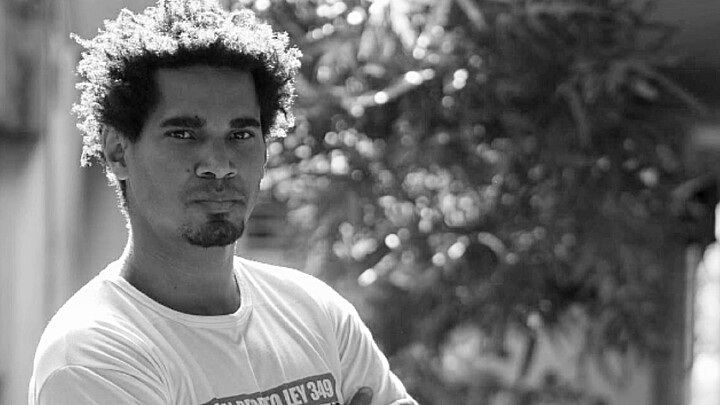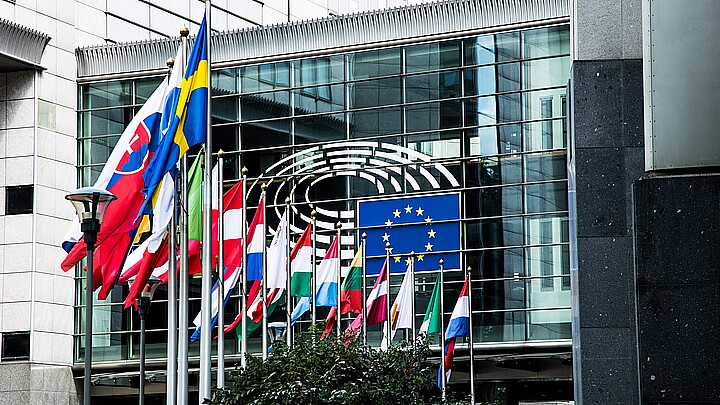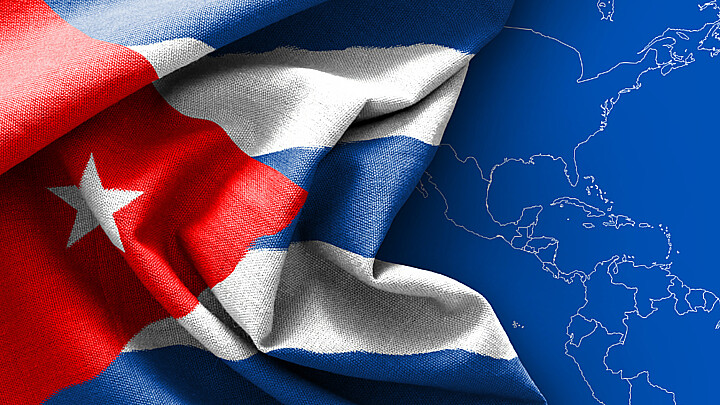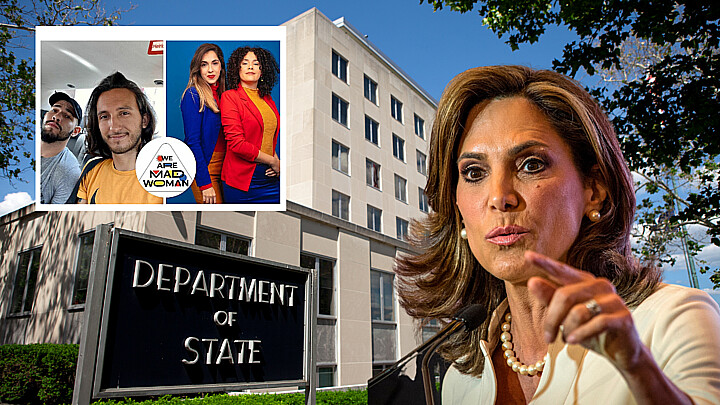Human Rights
"I'm going to take my life": Painful message sent by disabled Cuban political prisoner to his mother
“Mom, I'm sorry. I love you with all my heart, but if they keep me here one more day without having done anything, I'm going to take my own life. I can't take it anymore," confessed the 25-year-old

April 20, 2023 3:58pm
Updated: April 20, 2023 10:08pm
Cuban political prisoner Abel Machado Conde, who was sentenced to 9 years in prison after the anti-government protests of July 2021 (11J), told his family in a letter he was going to take his own life if the abuses against him continued.
He is currently detained in the Quivicán prison, which is located in the province of Mayabeque, Cuba.
"Mama, I'm sorry. I love you with all my soul, but if they keep me here for one more day without having done anything, I'm going to kill myself. I can't take it anymore," confessed the 25-year-old in a letter sent this week to his mother, Beatriz Conde Mesa.
Machado Conde, who is from Güines, has been detained since August 25, 2021. Human rights organization Justicia 11J said the young man was sentenced by a military court to serve 9 years behind bars, accused of "public disorder" and alleged "sabotage" after he entered a state-owned store that sells in MLC, a virtual currency that the majority of the Cuban population does not have access to, during the protests.
Cuban civil rights group, Ni un preso político más en Cuba (Not one more political prisoner in Cuba), released a statement on social media, saying that "Abel Machado, a young Cuban who suffers from a mental disability, has already attempted suicide twice since he has been deprived of his liberty."
Abel Machado Conde, preso político del 11J, de 25 años de edad, en la prisión de Quivicán, ha mandado hoy esta carta a su madre Beatriz, en la que dice que no aguanta más seguir sufriendo sin haber hecho nada y que piensa quitarse la vida. Abel Machado, un joven cubano que padece… pic.twitter.com/SNHcHJrqTj
— Ni Un Preso Político Más En Cuba (@NiUnPresoMas) April 19, 2023
"People with this type of disorder are particularly vulnerable and require special treatment. The Cuban regime does not stop repression and harassment. Whatever happens to this young man is entirely their responsibility," they warned.
Machado's brother, Guillermo Sierra Conde, told ADN Cuba that no prison official want Abel in their pavillion, "because they say they don't want to be responsible for what happens to him."
"Since the beginning, the entire prison has known he has a disability, but the prosecutors charged him anyway because they felt like it, just like my cousin Daniel Antonio Páez Sierra, who is the second in command of State Security in San José de las Lajas, and who pushed hard for all of this to happen," Guillermo said.
Only one "reeducator" has taken custody of Abel Machado, and according to his brother, "they have ten prisoners watching him day and night because they know he is really going to kill himself. They are afraid he will do it, but they do not give him a medical examination. He is compatible to be in Quivicán, but he was not for the first mandatory military check-up."
In Cuba, a reeducator (reeducadora in Spanish) is a person who is responsible for "reeducating" prisoners and providing them with ideological and political education, with the goal of changing their beliefs and behavior in accordance with the ideology of the ruling Cuban Communist Party.
According to the family member, "the only medical examination they did before the trial was a facade, behind a hospital in San José de las Lajas, in a little room with a doctor who was not a doctor, but a prosecutor. And in the trial, they brought in a supposed commission of doctors who were all lying."
Guillermo says his brother was sentenced to 9 years just for entering the store during the protests.
"What he did was enter through a broken glass, which other people broke, and took seven packets of detergent that my mom threw away and a little tube of ham," he told ADN Cuba.
The political prisoner's brother also told ADN Cuba that Abel has attempted suicide in the past.
Cuba is among the Latin American countries with the highest suicide rates. According to Dr. Ramón Felipe Prado Rodríguez, a specialist in Psychiatry at the "General Calixto García" University Hospital located in Havana, the island registers approximately 13 suicides per 100,000 inhabitants. Around 70% of suicides in the Greater Antilles are carried out by men.
One of Machado Conde's suicide attempts occurred, his brother explains, when he was "under investigation in the AIDS prison, and after trying to hang himself, the guards put shackles on him and tied him to a bed, beat him with a plank all over, and then put him back in solitary confinement."
According to Guillermo Sierra Conde, his brother's recent warning about wanting to take his own life was motivated by "the beating given to him by Yunieski Montero, the second-in-command at the prison. They had him sleeping on the floor for a week after the beating."
"They are threatening to send him to Melena or any other prison. He may be depressed because the medications are not working, no antidepressant is having an effect," his brother added.
In the letter sent to his mother this week, Machado Conde stated: "After that guy beat me up and they lifted the charges against me, I realized that everything was set up to screw me over (...) But nobody is going to mistreat me anymore, I'm tired of so much suffering. I'm sorry for you, but if that happens, I will take my own life. Enough is enough of suffering. I love you with all my soul, and tell my little brother that if that day comes, all I ask is that he always talks about me to my nieces and nephews, whom I love with all my soul and heart," wrote the young man.
"If my brother dies, my mother will kill herself too, following him. She has always said that if one of her children dies, she will follow them. But I won't kill myself, I have two little children, but I will hold each of those responsible accountable," his brother Guillermo fears.
Sierra Conde stated that officials from the Ministry of the Interior have threatened his mother not to report what is happening with his brother. "They cannot threaten her because she is sick, they have made her nervous," he warned.
Justicia 11J Working Group on Political Detentions detailed to ADN Cuba that since the massive protests of July 2021, they have documented the detention of 1812 people as part of the state's response to various anti-government demonstrations.
Fron those detained after the massive protests that shocked the island in July, 11th 2021, at least 768 Cubans remain in prison, and 742 have been mainly tried for the 11J, the call for the Civic March for Change on November 15, 2021, and the 2022 protests due to the worsening economic and social crisis, the human rights group added. In total, there would be at least 990 people imprisoned and sentenced or pending trial for expressing their discontent with the Communist Party regime.










